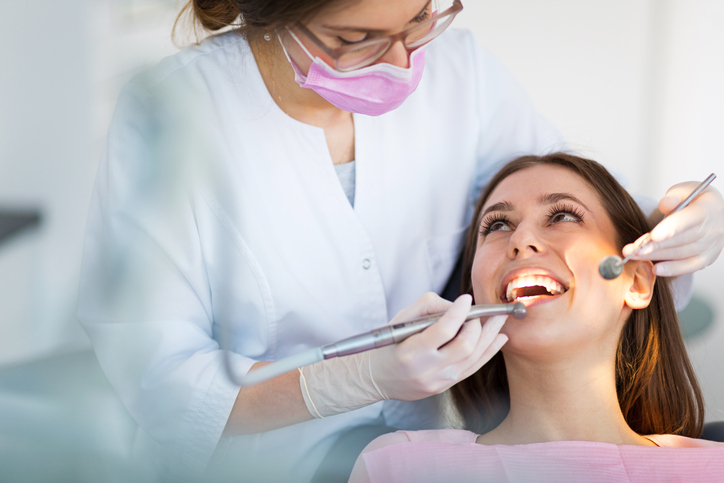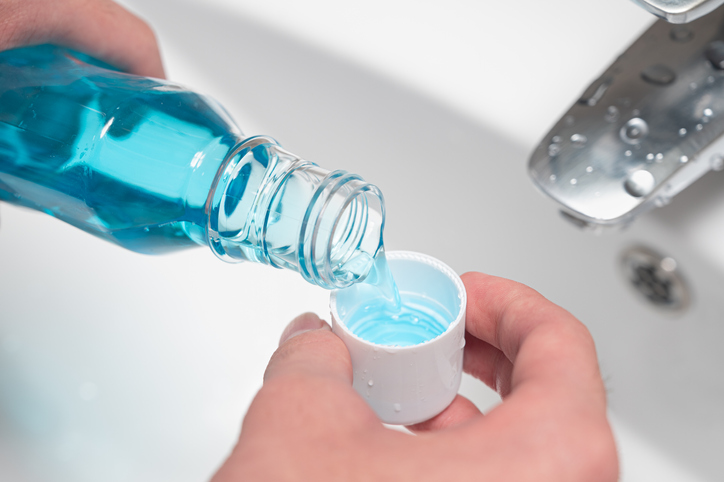
While generally preventable, cavities are unfortunately one of the most common oral health problems. Cavities are caused by the buildup of bacteria in the mouth when we eat or drink. These bacteria form plaque, which sticks to the teeth and erodes the layer of enamel, leading to cavities. There are many ways to prevent cavities, and if you’re considering a career as a dental assistant, patients will be relying on you to advise them on the best ways to keep cavities at bay. Due to the effects of COVID-19, patients are staying home more frequently and many have been changing their health habits for the better. With this in mind, it could be a good time as a dental health assistant to remind patients to be aware of cavity prevention measures that can be taken at home as well as in the dental office.
Read on to discover five different practices which work to prevent against the occurrence of cavities. Your patients can incorporate these tips into their oral hygiene routines to fight bacteria and effectively remove cavity-causing plaque.
1. After Dental Assistant Training, Ensure that Patients Brush and Floss Their Teeth
If you’ve completed a dental assistant program, this piece of advice probably goes without saying, but it’s worth repeating to the patients that need to hear it. In order to prevent cavities, patients should stick to a good oral hygiene routine which includes brushing twice a day, as well as flossing daily. As people are staying home more due to the pandemic, developing a good home care routine is essential in protecting against cavities and preventing unnecessary trips to the dentist.
Brushing and flossing are essential in removing bacteria, plaque and food debris from in between and around the teeth. In order to make the most out of their daily teeth cleaning, patients should be sure to use a toothpaste that contains fluoride as well as a brushing technique that doesn’t put too much force on the teeth. Brushing the teeth too vigorously can actually enhance tooth decay, so ensuring that your patients are brushing their teeth correctly can help them to effectively prevent cavities.

2. A Healthy Diet Goes a Long Way in Preventing Cavities
During the pandemic, a lot of people have become health conscious, making better food choices. This can actually help in preventing cavities, as what we eat can have a significant impact on the health of our teeth. Eating foods rich in vitamins, minerals, and nutrients will be important for patients in promoting healthy teeth. Additionally, it’s important to advise patients against consuming sugary, sticky, or acidic foods. These foods can contribute to greater levels of cavity-causing bacteria in the mouth, leading to cavities. When speaking to patients concerned about developing cavities, encourage them to swap carbonated drinks and candies for vegetables and nutritious snacks.
3. Using a Mouthwash Can Fight Cavities
Patients can prevent cavities by incorporating a mouthwash rinse into their oral hygiene routine. After dental assistant training, you can recommend that patients choose an antiseptic, fluoride-containing mouthwash. Using a mouthwash can fight cavities by killing harmful bacteria that accumulate in the mouth, as well as removing plaque which leads to tooth decay. For best results, patients can use mouthwash once or twice a day after brushing their teeth as a simple way to ensure better protection against cavities at home.

4. Patients Can Stay Hydrated to Avoid Cavities
Drinking water not only builds immunity in the body, helping patients in the fight against COVID-19, but is also one of the most important steps that a patient can take in protecting against the formation of cavities. Drinking water provides a natural way to rinse away food debris and excess sugars sticking to the teeth, as well as promoting the production of saliva. Saliva plays an important role in the fight against tooth decay, as it contains minerals such as phosphate and calcium which work to protect the teeth.
5. Regular Checkups Play an Important Role in Protecting Against Cavities
Visiting the dentist every six months is important for every patient when it comes to preventing cavities. Dentists can detect cavities with an oral exam or an X-ray machine, and these measures can help to identify a cavity in its early stages before it grows bigger and becomes a more serious problem. In the midst of a pandemic, some patients may be fearful of stepping out too often, and may be neglecting the habit of routine dental visits. It can be helpful to remind these patients of the importance of continuing with their regular dental visits. While the pandemic is ongoing, this will often involve reassuring patients of the special distancing and sanitation measures their own dental office has taken to ensure the safety of each and every visitor to the dental clinic. This type of information should help to put concerned patients’ minds at ease, and ensure that they keep up the most effective regimen for combating cavities.
Ready to pursue your dental assistant diploma?
Start your training with a program at Oxford College today!






